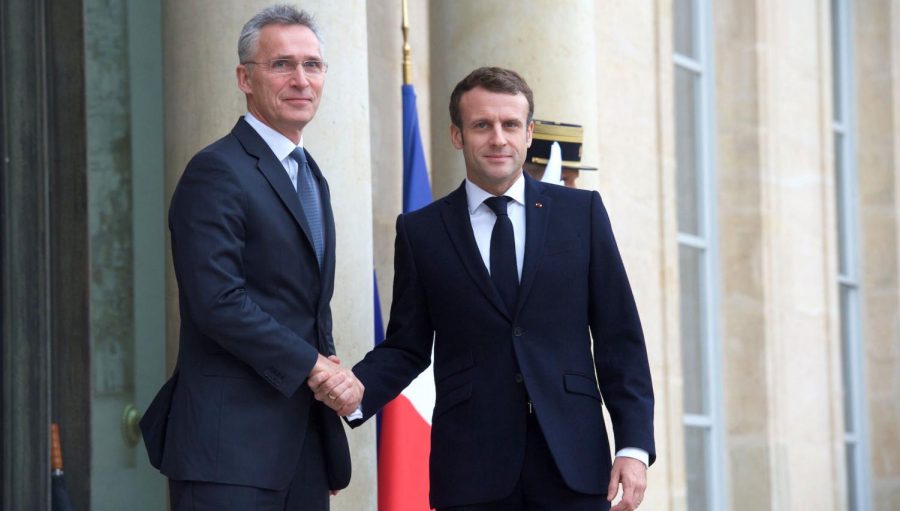NATO on the Brink
As leaders of member states of the North Atlantic Treaty Organization (NATO) prepare to gather in London this week, the alliance which has kept peace in Western Europe since its foundation in 1949 is becoming the subject of concern for its long-term viability and mission.
If the alliance fractures much further, the long-term stability of Europe may be under threat.
These doubts have increased in response to the actions of President Trump, who has derided NATO’s European member states for not contributing more to the groups funding. The meeting will be happening while Congress debates impeachment, and it is suspected that Trump may attack allies in an attempt to rally his base. Concerns related to this caused NATO to shift the gathering from a “summit” to a “leaders meeting,” allowing for damage control if infighting occurs.
Trump has long criticized NATO’s European member states for not paying the pledged 2% of GDP, and his administration is now set to decrease the U.S.’s contribution to NATO’s collective budget as it pressures the bloc’s European member states to increase their own commitments. The U.S. had provided 22% of NATO’s funding, due to its large economy, but Trump has pledged to decrease this to 16%, citing anger over Germany’s 14.8% contribution, despite the much larger size of the overall American economy. To help minimize the effect of this, Canada and some of NATO’s European members have reluctantly agreed to increase their contributions.
Trump, who is very unpopular in the UK, has also delved into British politics by involving himself in the Brexit debate. The President has done this by criticizing British leaders, including Labour Party leader Jeremy Corbyn and Britain’s Conservative Prime Minister, Boris Johnson. Trump has said that Johnson should join Nigel Farage, the former leader of the UK Independence Party; he may also ask for NATO members to increase pressure on China in light of the Hong Kong protests, a demand which may exacerbate existing tensions concerning American unilateralism.
Tensions within NATO have also risen due to the recent actions of Recep Erdogan, the President of Turkey. Under Erdogan, Turkey, a NATO member and long-term American ally, has invaded Kurdish-controlled regions in northern Syria and built positive relations with Russia, causing concern among its traditional western allies. Turkey is also threatening to obstruct efforts to defend those NATO countries which border Russia unless NATO offers support for its attacks on the Kurds, who had previously allied with the US and NATO members in the fight against ISIS. French President Emmanuel Macron, an occasional critic of Trump, criticized Turkey’s President, Recep Erdogan, leading to Trump attacking Macron and praising Turkey’s role in NATO.
Macron has also been a source of trouble for NATO, and recently criticized certain aspects of the NATO alliance, including article 5, the foundation of the alliance which says an attack against one member is an attack against all. In response to Trump’s presidency, Macron has insisted that NATO is no longer sufficient, and has supported the European Defense Initiative, a new group which performs much of the same tasks as NATO without American involvement. Macron’s statements drew criticism from German Prime Minister Angela Merkel, who defended the importance of NATO. Like Erdogan, Macron has also supported improving relations with Russia, and he has been notable as one of the few officials to support forcing Britain to adhere to its deadlines for withdrawal from the EU rather than continue negotiations. Macron also obstructed the effort to have North Macedonia and Albania join NATO, a decision which was criticized as endangering the expansion of democracy in the Balkans.
The first day of the meeting on Tuesday went poorly, as Trump criticized Macron’s statements on NATO and threatened to increase tariffs on French wine. So far, the meeting seems set to worsen relations between NATO member states.
For the past 70 years, NATO has prevented war from breaking out in Western Europe. Its division and factionalism during recent years bodes poorly for its continued success. While tensions like this are nothing new — France left NATO in 1966 over US involvement in the Vietnam War and did not return until 2009 — the degree to which the basic foundations of NATO are being challenged by its own members is troubling.
For now, it seems all we can do is wait and hope NATO’s current troubles subside before lasting damage is done to the alliance. If the bloc continues to shatter, the West may be in for a dramatic realignment of the diplomatic status quo which has kept peace and stability in Europe since the end of the Second World War.
Collin Bonnell, FCRH ’21, is a history major from Hingham, Mass.










































































































































































































